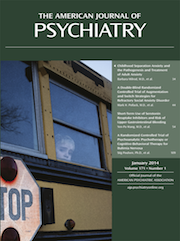Psycho-Oncology
Noticing this book in my hand, a passerby guessed what was meant by Psycho-oncology. He had just read the myth of Pandora’s box to his grandchildren. The gods each placed something harmful into the box presented to Pandora and forbade her ever to open it. Out of curiosity, one day she lifted the lid and out flew innumerable plagues, sorrow, and mischief for mankind. In terror, Pandora clapped the lid down but too late; these evils were set loose. What is often forgotten, however, is that Hope was also in this box, and it flew out into the world (1).
This man correctly surmised that psycho-oncology is the art and science of sustaining morale—the cultivation of authentic hope—in a patient who is facing cancer and seeking a personal way to cope. This book presents the state of the field in the 21st century, as cancer treatment itself is often long, complex, and uncertain. International experts from Italy, Switzerland, Austria, the United Kingdom, and Australia, as well as the United States, focus on the caregiver-patient dyad and review the knowledge base for those who wish to take the pulse of the field.
Each chapter adds an experienced clinical voice and a view of emerging clinical developments. Cases illustrate patients with a history of good coping, bad coping, recurrent major depressive disorder, and substance abuse and the role of psychiatrist, psychologist, and oncologist to improve outcome. Cancer providers often fear that asking patients about their concerns will open Pandora’s box. The chapter on communication emphasizes what can be taught, itemizes valued physician behaviors, and gives concrete examples: asking what patients already understand about their disease before telling, dealing with emotions before facts, giving patients the time to absorb information before intervening verbally, vigilance about speaking when angry or being overly sympathetic, answering “I wish there were more I could do,” and aligning with the patient while at the same time defining reality (pp. 57–90).
A therapeutic approach for the family centers on a family narrative and includes storytelling as an interactive and unique portrait of illness events. The goal is to enhance mutuality in a family and yet to allow each family member to have distinct explanations of “Why me?” and “Why us?” If family members can share emotionally the experience of one member’s illness and be together with that person, then the individual is not alone. In reviewing practical knowledge about genetic counseling for hereditary cancers, there is special note of communicating test results to family members.
The authors review existential psychotherapies (supportive-expressive therapy, meaning-centered psychotherapy, dignity therapy) and other psychosocial interventions, introducing cognitive-analytic therapy, but they move beyond these to put factors that moderate the effectiveness of interventions in context and offer a tiered approach to treatment. If patients are to benefit from psychological interventions, they must be struggling to cope with concerns or emotions; interventions must “fit” the problem and be tailored to illness and treatment, and patients must feel that an intervention is relevant and acceptable.
Psychopharmacology here is related to a dimensional view of psychopathology in the cancer patient using the Rapid Dimensional Assessment Scale: sadness/demoralization, anger/irritability, impulsiveness, activation, obsessionality, apathy, reality distortion, thought disorganization, somatic preoccupation, and somatization. The dimensional analysis overcomes distinctions among subthreshold major depression, mild major depression or adjustment disorder, generalized anxiety disorder comorbid with mood disorder, and mixed anxiety-depressive disorder. The best-fitting diagnostic criteria the authors find less interesting than the exploration of several dimensions and the severity, duration, and shape of the profile of suffering. By dimensions, they tailor antidepressants as antistress pills. Ongoing psychosocial intervention is the prerequisite of any psychotropic prescription.
The teaching of existential issues in advanced palliative care is anchored in the philosophy of Kierkegaard, Nietzche, Heidegger, Jaspers, Binswanger, Buber, Tillich, and Frankl and elaborated in case vignettes. Lessons are made vivid in the discussion of a clinical approach to supporting the dying patient. For medical education, narrative competency and longitudinal exposure to patients with advanced illness are advocated. Other chapters cover the knotty problem of screening for depression in cancer patients and the value of research measures of quality of life in the clinical setting. In the process, authors review many screening measures and instruments for quality of life measurement with consideration of clinically meaningful change and emerging technology. The longitudinal curve of symptom severity may help to focus clinical conversation. The book culminates in a discussion of the development of psycho-oncology services internationally, the multidisciplinary requirement, and international standards for these services.
This book stands as an international statement of where the field of psycho-oncology is today and houses a treasure trove of well-written clinical insights about the words that can access the life force of each patient who suffers with cancer. It will serve readers well, as our educated ability to respect each patient sustains hope.
1 : Mythology: Timeless Tales of Gods and Heroes. London, Penguin Books, 1969Google Scholar



